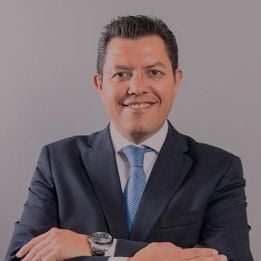

General counsel | MXT Holdings



Rolando Rábago Rodríguez
General counsel | MXT Holdings
Team size: 10 people
How do you approach managing legal aspects during periods of instability or crises, and how does your legal strategy align with the broader business strategy to ensure the organisation’s resilience?
At MXT Holdings, the legal function acts as both a shield and an enabler, particularly in times of instability such as regulatory change, market shifts, or supply chain disruptions. My approach is built on four pillars. The first is proactive regulatory monitoring and scenario planning. In telecommunications infrastructure (towers, fiber, DAS, etc.), government action on regulation, licensing, or land-use can have significant impact.
Second is alignment with business strategy and risk tolerance. Legal strategy must reflect the level of risk defined by the board and executive leadership. I ensure that contracts, financings, and acquisitions embed escape clauses, compliance covenants, and environmental or municipal obligations, protecting MXT in adverse scenarios while enabling growth.
Thirdly, resilient contracts and supply chains. Our operations depend on rights over land, fiber routes, poles, ducts, and third-party facilities. We secure these through strong contracts: thorough due diligence, clear allocation of responsibilities, escalation and dispute resolution mechanisms, insurance, and performance guarantees.
Finally, flexible dispute resolution and cost control. We combine in-house capabilities with trusted external counsel, allowing us to manage most regulatory and transactional matters efficiently while controlling costs.
What are the major cases or transactions you have been involved in recently?
Deployment of the “Maya Project”. This included development of ~400 km of interurban 96-fiber backbone between Mérida, Cancún, and Playa del Carmen, requiring coordination across jurisdictions, rights-of-way management, environmental permitting, and structured engagement with local governments and other stakeholders.
Cross-border corporate migration, managing the transfer of a group entity from the Netherlands to Luxembourg, with a subsequent migration to Mexico, involving complex tax, regulatory, and corporate governance considerations.
I was also involved in a number of strategic transactions, leading a refinancing process and multiple negotiations with key industry players, including Altán Redes, Telcel, AT&T, and Telefónica.
What measures has your company taken to embed sustainability practices into its core business operations, and how does the role of the general counsel contribute to driving and ensuring sustainable practices within the company?
Sustainability in operations. MXT designs and operates neutral-host telecom infrastructure, reducing duplication of towers and fiber and thereby minimising environmental footprint. We prioritise the use of existing rights-of-way, minimise land disturbances, and comply fully with environmental permits.
Risk and compliance integration: the legal function ensures compliance with all environmental, land-use, and permitting requirements, while also conducting climate risk analyses (e.g., extreme weather, flood zones) for tower sites and fiber routes. ESG criteria are embedded into supplier and customer contracts, requiring environmental standards and local community impact assessments.
Governance and accountability: as General Counsel, I ensure sustainability commitments are backed by measurable compliance and reporting obligations. Environmental risks and opportunities are integrated into board-level governance and reflected in legal documents, contracts, and disclosures.
How do you prioritise diversity and inclusion within your legal department, and what initiatives have you implemented to foster a more inclusive and equitable work environment?
We began by defining clear job descriptions aligned with the new organisational structure, ensuring transparency, equity, and career development. We also completed the NOM-035 assessment on psychoemotional safety, with an action plan now being implemented to strengthen employee well-being.
In parallel, we drafted and published key policies that establish an inclusive and ethical culture: Procurement Policy, Expenses Policy, Anti-Corruption and Anti-Money Laundering Policy, Code of Conduct, Diversity, Equity, Inclusion and Respect Policy, and Workplace Health and Safety Policy. Together, these initiatives create a workplace where diverse perspectives are valued, employees are supported, and opportunities are shared equitably.